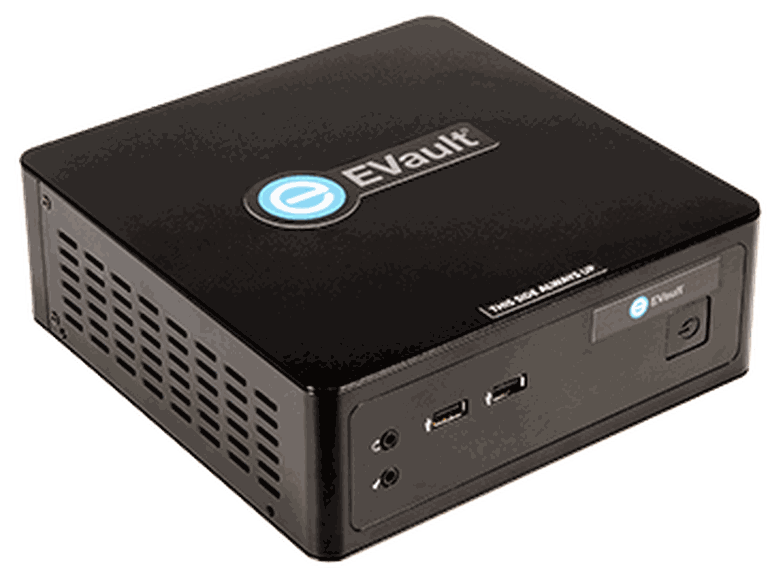
Carbonite is preparing a portfolio of on-premises backup appliances that scale from small businesses up to the midmarket. The appliance portfolio will be part of a partner-led HaaS (hardware as a service) business model that links into Carbonite's cloud-based backup services, according to Senior VP of Marketing Norman Guadagno,
The first appliance in Carbonite's overall HaaS strategy, called E2, surfaced earlier this week. "This is the start of something bigger," Guadagno told ChannelE2E today. "This is a HaaS model driven by powerful EVault software coupled with Carbonite's commitment to ease of use. We're doing this in a way that gives partners more headroom to work with new types of customers at a good price point that doesn't require a lot of overhead." (Side note: We didn't discuss pricing.)
E2 is just the first step in the appliance and HaaS strategy. Carbonite is planning to launch larger and larger rack-mounted appliances for partners and customers who need to scale the systems. The solutions will be entirely OpEx, with no CapEx involved. Partners can leverage Carbonite's multi-tenant platform to manage the end-customer backups. The company also continues to offer cloud backup services that don't require on-premises appliances.
"We think our partners and their customers will fall into multiple categories," Guadagno said. "Some just need to back up a server or endpoint directly to the cloud. Others want solutions where they want on-premises appliances for even faster restore times. It could be about speed to recovery or just a preference for knowing the data is protected at the customer site. Our multi-pronged approach gives partners the opportunity to have a more in-depth discussion about customers' data protection needs."
Carbonite's Pivot
Carbonite has undergone a business transformation of sorts over the past year or two, hiring CEO Mohamad Ali and multiple executives including Guadagno and global channel sales veteran Chris Doggett. Amid the executive team updates, Carbonite in December 2015 acquired EVault from Seagate. Although EVault's technology was respected, the backup platform never quite found its momentum under Seagate's ownership.

Ali has focused Carbonite on channel partners that support small businesses with roughly 50 to 1,000 employees. Roughly 30 percent of those businesses plant to add cloud data protection and backup solutions in the next 12 months, according to IDC data that Ali shared during Carbonite's earnings call yesterday.
Carbonite's top 2016 accomplishments so far, according to Ali's statements on the earnings call:
- Revenue growth and margin expansion
- Financial results have been ahead of expectations and the company is raising guidance for Fiscal Year 2016
- The SMB-focused activities are performing well, with EVault integration ahead of expectations.
- The partner channel is energized, he indicated, with E2 providing yet another opportunity going forward. Hundreds of partners are already trained on the platform, he indicated.
In an interesting twist, Ali indicated that Carbonite is "appropriately managing" the consumer business -- a polite way of saying SMB is the company's near- and long-term future.
So far, Carbonite's results reinforce those points. In its most recent quarter, SMB booking rose about 131 percent to 28.8 million. At the same time, consumer booking fell 6 percent to $20.4 million.
Of course, Carbonite isn't alone in the HaaS or cloud backup market. The company faces intense competition from a range of BDR (backup and disaster recovery) companies. Some of those businesses (particularly Datto and Intronis MSP Solutions by Barracuda) are now blurring and/or erasing the line between backup and security services.
Hardware as a Service: More Examples

Meanwhile, a growing number of hardware companies and financial firms are introducing Hardware as a Service (HaaS) or some type of OpEx financing program. Recent examples include:
I'm not suggesting that "all" hardware will shift to an as-a-service model. In fact, ChannelE2E believes there will be an OpEx backlash at some point, as some customers begin to discover runaway monthly bills within multiple IT and business departments. But there again, channel partners will have an opportunity to offer vendor management services.



